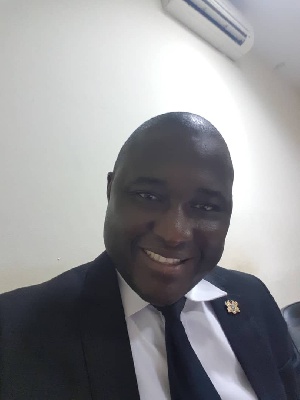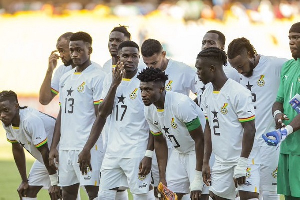INTRODUCTION
Evidence is sine qua non for judicial decision making function.The word EVIDENCE is widely used in diverse sphere of life and amenable to varied meanings. Legally, the Black Law Dictionary, Ninth Edition, defines evidence as “something - including testimony, documents and tangible objects - that tends to prove or disprove the existence of an alleged fact” or “the body of law regulating the admissibility of what is offered as proof into the record of a legal proceeding”. In Ghana, evidence is defined by the Evidence Act,1975 (NRCD 323) as; “testimony, writings, material objects, or other things presented to the senses that are offered to prove the existence or non-existence of a fact”.
In simple terms, evidence is made up of information, facts or materials put before a court by a party to prove or disprove an issue in dispute. Therefore, evidence plays a cardinal role in court to prove facts presented to convince the judge of the merits and or otherwise of a party’s case. Generally, the law requires that in an adjudication of a dispute “he who alleges must prove” by producing evidence to persuade or convince the judge or court. This principle is known in Latin as “semper neccesitas probandi incumbit ei qui agit ”.
Additionally, the law requires that to whom the burden of proof has shifted to must also produce evidence to confute or disprove same. To discharge the onus of proof, parties in a dispute must provide or produce evidence which might come in different forms which includes; testimonial, oral, demonstrative, documentary, real and scientific often known as digital or electronic evidence which is fast gaining notoriety due to the rapid advancement in technology.
Due to the indispensable role of EVIDENCE in the scheme of judicial or adjudication process coupled with the ubiquitous nature of technological communication access, particularly high tele-density or mobile penetration rate, many people conveniently resort to the use of mobile devices to secretly record communications to use as evidence whenever necessary or applicable.
This mode of gathering evidence is regarded as the most affordable, convenient and fast among all the other forms mentioned earlier. Consequently, there is an upsurge in the use of electronic means to gather both audio and video recordings as evidence mostly without the prior consent of the third parties involved.
This exposition focuses particularly on the application and admissibility of secret recordings (audio and video) through electronic devices in Ghana’s jurisprudence following the burgeoning technological advancement.
WHAT KIND OF EVIDENCE CAN BE ADMITTED OR ACCEPTED BY GHANA’S COURTS?
The common law position was that every evidence is admissible or acceptable in court irrespective of how it was acquired or obtained . This stance was confirmed by Crompton J in R V. Leatham (1861) 8 Cox CC98; where the court stated that “it matters not how you get it, if you steal it even, it would be admissible in evidence”. This principle is known as the inclusionary rule because it advocates the inclusion of every evidence once it is relevant to an adjudicatory function and no further consideration as to the legality of obtaining such evidence.
In Ghana now, not every evidence is admissible or accepted or allowed by our courts in the determination of dispute or legal matters. The Evidence Act of Ghana states that it is only relevant evidence which must be admissible in court. The said Act further states that “all relevant evidence is admissible except as otherwise provided by an enactment”. Ghana’s position on the admissibility or acceptance of evidence by our courts has been succinctly stated by Thesiger J in R V. Harz (1966) 3 ALL ER 449 that: “the main general rule governing the entire subject is that evidence which is sufficiently relevant to an issue before the court is admissible and all that is irrelevant or insufficiently relevant should be excluded. Thus the word relevant is to all intents and purposes synonymous with the phrases of probative value”.
As to who has the power or authority to determine the relevance of any evidence, the Evidence Act clothes our courts with the discretion to exclude relevant evidence if the probative value of the evidence is substantially outweighed by stipulated considerations. This is also amply supported by His Eminence Lord Diplock in R. v Sang [1979] UKHL 3 (25 July 1979) where he stated that; “a trial judge in a criminal trial has always a discretion to refuse to admit evidence if in his opinion its prejudicial effect outweighs its probative value.” Simply put, when the probative value, which is the useful part of an evidence to prove something important in a trial, is substantially outweighed by a danger of one or more of the following prejudices – unfair biases, confusing the issues, misleading the judge or court, undue delay or wasting time etc the court will exclude such evidence. This position is also known as the exclusionary rule because though the evidence might be relevant the court has the discretion to exclude such evidence due the fact that it was obtained by an illegal or improper act contrary to the democratic principles of the rule of law.
CAN YOU PRODUCE SECRETLY RECORDED COMMUNICATION IN COURT AS EVIDENCE?
Ghana’s position is unequivocally emphasized by the Evidence Act that the basic requirement for admitting or accepting or allowing evidence is RELEVANCE. Every relevant evidence is admissible except as otherwise provided by an enactment. This means that where a law or an enactment expressly states otherwise such an evidence will not be admissible or acceptable by court. The PREAMBLE of the 1992 Constitution epitomizes the spirit of the Constitution as the fundamental law of the land against which all actions ought to be measured and judged. This is further amplified by Article 1 (2) which provides that; “This Constitution shall be the supreme law of Ghana and any other law found to be inconsistent with any provision of this Constitution shall, to the extent of the inconsistency, be void”.
This implies that enactments or legislations of parliament, rules, regulations, orders, common law and customary law are all subservient to the Constitution and where they are inconsistent, they shall be declared a nullity. The Constitution protects the fundamental human rights of individuals guaranteed and anything inconsistent with such provisions is void to the extent of the inconsistency. Article 21 (1) a & b of the 1992 Constitution guarantees freedom of speech and expression, freedom of thought and conscience and belief.
These rights are described by the preamble of the Constitution as natural and inalienable rights which must zealously be protected and preserved under Chapter five (5) of the 1992 Constitution on Fundamental Human Rights and Freedoms. Specifically, Article 18 (2) provides that; “no person shall be subjected to interference with privacy of his home, property, correspondence, communication except in accordance with the law and as may be necessary in a free and democratic society for public safety or the economic well-being of the country, for the protection of health or morals, for the prevention of disorder or crime or for the protection of the rights or freedoms of others”. It is in further advancement of these fundamental rights that the Data Protection Act 843 was enacted in 2012 to protect the privacy and personal data of individuals.
The said Act regulates the process which personal information is acquired, kept, used or disclosed by data controllers and data processors in compliance with certain data protection principles. Additionally, the constitutional provisions on privacy are again fortified by Sections 29 and 30 (1) (C) of the Security and Intelligence Agencies Act 1996, Act 526 which requires that an official of the security agencies who wants to intercept communication as part of investigations shall apply to a superior court judge for authorization to do so. It is trite law that no person can make what is constitutional unlawful and vice versa.
This principle was enunciated by the Supreme Court in Tuffour V. Attorney-General (1980) GLR 637 that “No person can make lawful what the Constitution says is unlawful. No person can make unlawful what the Constitution says is lawful. The conduct must conform to due process of law as laid down in the fundamental law of the land or it is unlawful and invalid”. Therefore, any evidence obtained in contravention of the Constitution though relevant in determination of a dispute or legal matter will not be admissible when it is obtained through an illegal or improper means. The United States Supreme Court in Silverthorne Lumber Co. V. United States (1920) 251 U.S 385) opined same position in the doctrine of the “fruit of the poisonous tree”. This doctrine stipulates that the outcome of an illegal or improper act to obtain evidence should not be admissible because judicial decisions must be made based on the rule of law but not on illegality.
The privacy provisions in our constitution are not cast in stone but grants exceptions under which the rights of persons can be interfered to obtain evidence, based on; public safety, economic well-being grounds, protection of health and morals, court order, prevention of disorder and protection of the freedom of other persons. Public policy is a major ground to admit or accept evidence even if it is obtained illegally, improperly or in contravention of the Constitution. His Lordship Burrough J in Richardson V. Mellish (1824) 2 Bing 252 stated that “public policy is a very unruly horse, and when once you get astride, you never know where it will carry you”. This is because public policy is largely unwritten and ambulatory which lends itself to grave exercise of discretion.
Ghana’s apex court, Supreme Court, in recent times have made concise pronouncement on this matter in two (2) cases. The first was in Mrs. Abena Pokuaa Ackah V. Agricultural Development Bank [Ref.No. J4/31/2014 (19th December 2017) where Mrs. Abena Pokuaa, an Appellant and employee of the Agricultural Development Bank got the contract of employment terminated on the grounds of divulging sensitive business affairs of the bank through a telephone conversation to a freelance journalist. After rehearing the appeal, His Lordship Dotse JSC stated that, “we hold that the delivery of the secret recorded conversation between the Appellant and Respondent amounted to a breach of the Appellant’s right to privacy as provided in Article 18 (2)”. Justice Pwamang in concurrence stated that; “in my considered opinion the secret recording of the Appellant was a violation of her right to privacy of her private life. It is an intrusion into her private life beyond the extent that she had consented to because the individual should be free to determine the manner and extent of his relations with whoever she chooses to relate to”.
The Supreme Court in Raphael Cubagee v Michael Yeboah Asare & 2 Ors [Ref.No. J6/04/2017 (28 February 2018) further consolidated the position on secret recording of conversations. In this matter, the Plaintiff sought to tender in evidence in the form of a telephone conversation which was secretly recorded with a representative of the 3rd Defendant. His Lordship Pwamang JSC, further declared that secret recording of a telephone conversation was a breach of the privacy provisions of the 1992 Constitution under Article 18 (2). “To record someone with whom you are having a telephone conversation is to interfere with his privacy beyond what he has consented to”.
Pwamang JSC emphasized that the object of the constitutional rules on privacy was to protect “the individual against unwarranted intrusion, scrutiny and publicity and guarantees his control over intrusions into his private sphere”. However, the Court, in concluding, added that it was not every evidence obtained in breach of the constitution shall be rendered inadmissible. In the Court’s view, a judge should have the discretion to consider the relevant circumstances of the case, such as nature of the rights that had been violated, the manner and degree of the violation, the gravity of the crime being tried, the manner in which the offense was committed, as well as the severity of the sentence the offense attracts and determine whether the evidence should be admissible or not.
IS THERE ANY REMEDY UNDER THE 1992 CONSTITUTION FOR PERSONS WHOSE PRIVACY RIGHTS HAVE BEEN BREACHED VIA SECRET TELEPHONE RECORDING?
In recent developments, the Supreme Court has made bold expansion into the frontiers of the law on the award of damages for the breach of a constitutional provisions, particularly under fundamental human rights and freedoms. In the case of Awuni v. WAEC (2003 -2004) 1 SCGLR 471 the court cautioned that by making the award of damages, it was not laying down the general principle in regulating the exercise of the court’s discretion as that would open the floodgates for the award of all types of damages in public proceedings. However, the Supreme Court in Mrs. Abena Pokuaa Ackah V. Agricultural Development Bank speaking through His Lordship Dotse JSC stated that; “In considering the applicant’s right to a monetary award, it is important that we caution ourselves that the provisions for the enforcement of fundamental human rights are designed to give teeth and meaning to the rights and freedoms and our courts must be innovative in crafting remedies that would bring about attitudinal changes, which would enure to all in the enjoyment of those rights.
Looked at in this context, it does not seem to me that merely awarding damages would bring about the clear constitutional intent of better enforcing or securing the enforcement of the rights contained in articles 12-30 of the 1992 Constitution. We should in future be directing our minds to making orders, and or directions that will make it abundantly clear to those who have no regard for the fundamental rights and freedoms that it does not pay to be a violator of those rights”.
The Learned Justice concluded his erudite submission by stating that; “…..we are left with no option than to apply the basic learning that damages may be awarded for the invasion of her right to privacy guaranteed under Article 18(2) of the 1992 Constitution”. Clearly, the breach of the privacy rights of persons through secret telephone or any form of electronic recording currently attract the award of damages. The Supreme Court in future will make orders and or directions and or in addition to the award of damages to sound a strong caution or signal to violators of privacy rights under the Constitution.
CONCLUSION
Generally, secret telephone and or electronic recording without justification is not admissible or acceptable in a court of competent jurisdiction in Ghana because such conduct is a breach of the privacy rights guaranteed under Article 18 (2) of the 1992 Constitution. The breach of such rights may attract the award of damages and or consequential orders or directions by the Courts. Therefore, we ought to exercise utmost circumspection in the way we gather or record and use electronic or digital evidence without consent in order to avoid any legal consequences or repercussions.
By: Limann A. Mohammed Mohammed.limann@gmail.com
Opinions of Monday, 28 January 2019
Columnist: Limann A Mohammed







![Former President Akufo-Addo [L] and Okatakyie Afrifa Mensah Former President Akufo-Addo [L] and Okatakyie Afrifa Mensah](https://cdn.ghanaweb.com/imagelib/pics/587/58758132.295.jpg)











